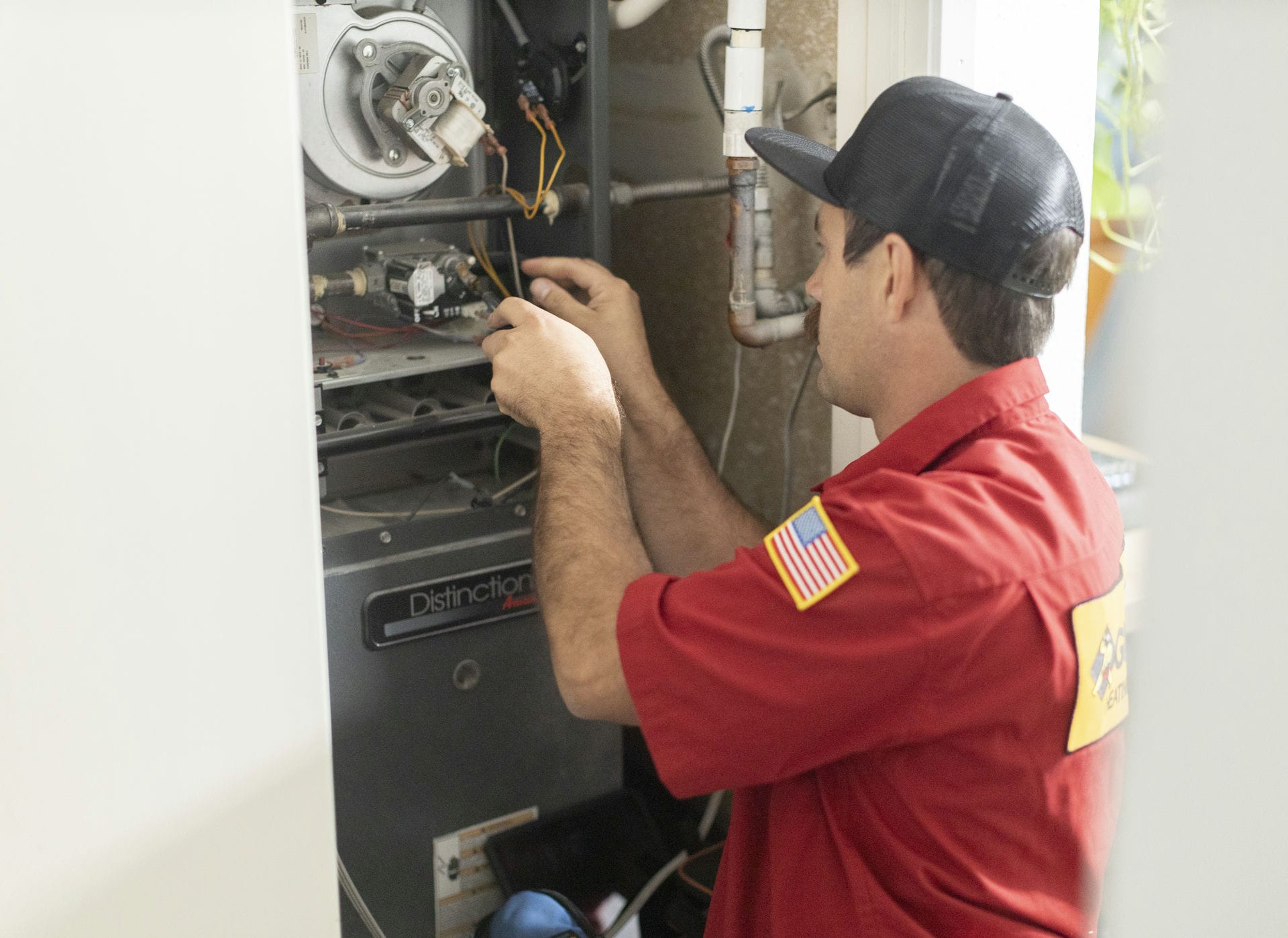One of the most unfortunate things that can happen to a homeowner is water damage. Not just water getting in or on places or objects that it shouldn’t, but deep, irreversible damage to your foundation, systems, and other important appliances and fixtures.
For example, if your HVAC system starts leaking water, it can get into your air ducts. From there, mold and mildew can start to grow, which will lead to an unsafe living environment for you and your family. That’s why if you notice your HVAC leaking water, you need to have the issue addressed immediately.
Whether your air conditioning system or your heating system is leaking water, there could be numerous problems that only a trained professional can handle. Take a look at some of the reasons your furnace or AC is leaking water:

Furnace water leaks are a frequent concern for homeowners, potentially leading to expensive repairs. As stated, if the water leaks into your air ducts or filters, it can lead to mold growth, which can result in health issues for you and your loved ones.
Along with that, if these leaks persist, they can damage necessary components within your machine, leading to the need for a furnace replacement. That’s why when you notice these issues within your system, you need to get in touch with a professional technician to inspect the problems.
One common culprit for a furnace leaking water when the heat is on is condensation forming when high-efficiency furnace exhaust gasses are released. When this condensation doesn’t drain properly, it becomes a source of water leaks, accentuating the need for timely attention to prevent further issues.
Here are a few common causes of water leaks from a furnace:
Similar to your furnace, if your air conditioner is leaking water, there is the risk of mold growing in your home. Additionally, if your unit leaks persistently—whether it’s the air handler or the pipes and connections—it can cause a significant amount of water damage to your home and property.
When your air conditioner is turned on, it generates water. If there are loose connections, unattached components, or any other malfunctioning part, your unit can leak, leading to further issues.
Here is a list of the most common causes of AC water leaks:
When you confront leaks within your air conditioner or furnace, there are a few steps you should take to protect your home and equipment from further damage.
Whether you need heating repair services or air conditioning repair services in the Sacramento Valley or Roseville area, reach out to our team of experts at Gilmore. We’ll diagnose any issue your systems are experiencing and quickly figure out a solution.
Contact us today to learn more or schedule an appointment.